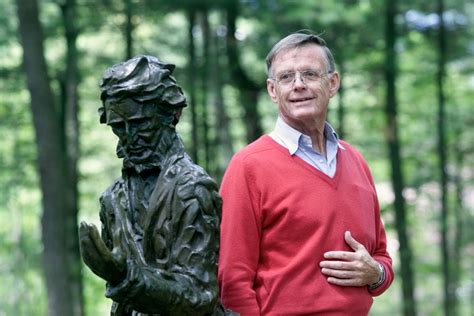A Quote by Robert D. Richardson
Part of the power of Emerson's individualism is his insistence, at crucial moments, that individualism does not mean isolation or self-sufficiency. This is not a paradox, for it is only the strong individual who can frankly concede the sometimes surprising extent of his own dependence.
Related Quotes
Individualism regards man - every man - as an independent, sovereign entity who possesses an inalienable right to his own life, a right derived from his nature as a rational being. Individualism holds that a civilized society, or any form of association, cooperation or peaceful co-existence among men, can be achieved only on the basis of the recognition of individual rights - and that a group, as such, has no rights other than the individual rights of its members.
Individualism is at once an ethical-psychological concept and an ethical-political one. As an ethical-psychological concept, individualism holds that a human being should think and judge independently, respecting nothing more than the sovereignty of his or her mind; thus, it is intimately connected with the concept of autonomy. As an ethical-political concept, individualism upholds the supremacy of individual rights
Individualism has come in for an enormous amount of criticism over the years. It still does. It is widely assumed to be synonymous with selfishness...But the main reason why so many people in power have always disliked individualism is because it is individualists who are ever keenest to prevent the abuse of authority.
If we return to the two faces of individualism - individualism as the spur of energy, initiative, and imagination; and individualism as the limitless struggle of all against all - it can be seen how the two practices emerge from and limit the extend of the disequilibrating impact of the contradiction involved in the geocultural agenda.
Because of social pressure, individualism is rejected by most people in favor of conformity. Thus the individual relies mainly upon the actions of others and neglects the meaning of his own personal life. Hence he sees his own life as meaningless and falls into the “existential vacuum” feeling inner void. Progressive automation causes increasing alcoholism, juvenile delinquency, and suicide.
'Rugged individualism' has meant all the 'individualism' for the masters, while the people are regimented into a slave caste to serve a handful of self-seeking 'supermen.' America is perhaps the best representative of this kind of individualism, in whose name political tyranny and social oppression are defended and held up as virtues; while every aspiration and attempt of man to gain freedom and social opportunity to live is denounced as 'un-American' and evil in the name of that same individuality.
A work of art is the unique result of a unique temperament. Its beauty comes from the fact that the author is what he is. ...Art is the most intense mode of Individualism that the world has known. I am inclined to say that it is the only real mode of Individualism that the world has known. ...Art is Individualism.
For anyone with the traits - of feeling himself victimized, of seeking to be the strongman who resolves everything, yet sees truth only through his own self and negates all other truth outside of it - is bound to become more malignant when he has power. Power then breeds an intensification of all this because the power can never be absolute power - to some extent it's stymied - but the isolation while in power becomes even more dangerous. Think of it as a vicious circle. The power intensifies these tendencies and the tendencies become more dangerous because of the power.
Among other grand achievements, F. A. Hayek had a remarkable career pointing out the flaws in collectivism. One of his keenest insights was that, paradoxically, any collectivist system necessarily depends on one individual (or small group) to make key social and economic decisions. In contrast, a system based on individualism takes advantage of the aggregate, or 'collective,' information of the whole society; through his actions each participant contributes his own particular, if incomplete, knowledge-information that could never be tapped by the individual at the head of a collectivist state.








































